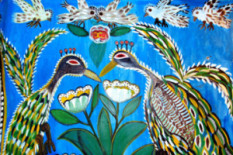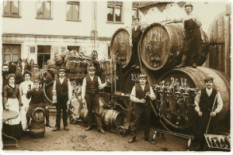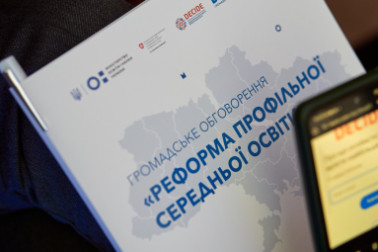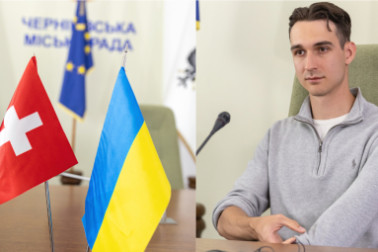During his short, 42-year life, Hohol authored about 30 works that have earned him worldwide fame and recognition. Among his works are a collection of fantasy novels like "Myrhorod" and "Village Evenings near Dykanka". He penned a description of Cossack life and customs in the drama "Taras Bulba". And produced searing satire on imperial society in the novella "Dead Souls". The comedy "The Government Inspector" made him a classic of Russian literature (although in today's climate, he would be better recognised in the Russian Federation for his anti-state work).
Modern Russia, continuing the traditions of the Soviet Union, appropriates all the merits of the artist by claiming him as one of their own. Wikipedia marks him as a Russian writer of Ukrainian origin. But in Ukraine it is a different story. In our school program he is studied in Ukrainian literature lessons, children grapple with the works of one of the most mystical writers of the 19th century. Nothing about this writer's heritage is straight forward.
Nurtured by Ukrainian motherland
Mykola Vasyliovych Hohol was born on March 20 (April 1), 1809, in the heart of Ukraine - in the village of Sorochyntsy, Poltava region. He belonged to the ancient Hohol-Yanovsky Cossack family, and his ancestor Ostap Hohol was the commanding hetman of Right-Bank Ukraine, the highest rank of Cossack. According to researchers, among Hohol's ancestors were other prominent Cossack families such as Doroshenko, Skoropadsky, Mazepa, Pali. We can assume that in one of his most famous works, “Taras Bulba”, the writer recreated the Cossack heritage of his great-grandfathers.
Mykolka's mother Maria Ivanivna spoke Ukrainian all her life and instilled a love for it in her son. Hohol was fluent in the language from an early age and was introduced to the rich culture and customs of his people. Grandmother Tetyana Semenivna also made a great contribution to the development of the personality of the future writer. Under her influence, the young man became interested in collecting Ukrainian folklore, in particular songs, legends, proverbs and anecdotes. Living in St. Petersburg, he asked his relatives to send new material. In the mid-1830s, Hohol's collection included more than a thousand songs of the Ukrainian people. "Show me a nation that would have more songs. Our Ukraine rings with songs!", the writer noted.
Magical realism in Ukrainian and self-identification of the writer
Having gained world recognition, Hohol became the first popularizer of our country in the international arena. The whole world learned about the way of life, beliefs and ideas of Ukraine at that time from his collection of works "Myrhorod", which included the works "Village Evenings Near Dykanka", "Sorochyn Fair", "Taras Bulba", "Viy". The fantasy plots of these books, full of symbols and vivid images, in which the otherworld is organically woven into everyday life, give reason to consider the writer a representative of the magical realism movement. And precisely in his scary tales and horror stories with evil spirits he describes Ukrainian magical realism.
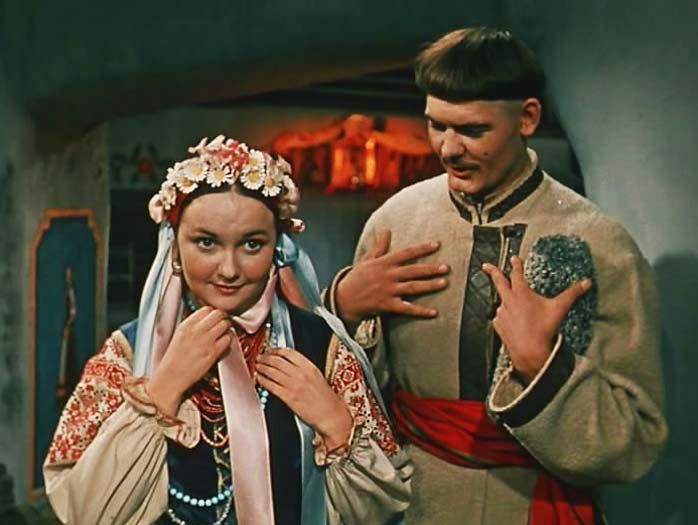 In his first years in St. Petersburg, Hohol was not only not ashamed of his cultural and historical affiliation, but also tried to emphasize it. This was eloquently shown by the writer's hairstyle - "a tuft of hair on his head." The fact that the author wore a Cossack style haircut is mentioned by one of his students Loginov, to whom he gave private lessons, as well as by his friend Aksakov, noting that Mykola's appearance was ‘completely different’.
In his first years in St. Petersburg, Hohol was not only not ashamed of his cultural and historical affiliation, but also tried to emphasize it. This was eloquently shown by the writer's hairstyle - "a tuft of hair on his head." The fact that the author wore a Cossack style haircut is mentioned by one of his students Loginov, to whom he gave private lessons, as well as by his friend Aksakov, noting that Mykola's appearance was ‘completely different’.
Moreover, the author himself, despite his stay in the Russian Empire, considered himself as Ukrainian. In 1840, while staying at a resort in Carlsbad (now Karlovy Vary, Czech Republic), the writer put himself in the guest book as "Nicolas de Gogol, Ukrainien, etabil a Moscou" - "Mykola Hohol, a Ukrainian living in Moscow."
Foreign Russian culture
Hohol became one of the only writers who, in the first half of the 19th century, clearly emphasized the differences between the culture of Ukraine and Russia. That difference is clearly visible in many of his works, in particular from the collection "Myrhorod". He wrote in the original "Hohol" language, whichcelebrated brightness, but became an object of ridicule by contemporaries. Fighters for the purity of the language were outraged by the distortion of the Russian language and the large number of provincialisms in the texts. The cultural duality of the texts is clearly outlined in such works as "Village Evenings Near Dykanka", "Taras Bulba" and "Myrhorod". In correspondence with his mother in 1829, he emphasized that the Russian language was foreign to him. This was also highlighted by his contemporaries, noting that the writer spoke Russian with a noticeable accent.
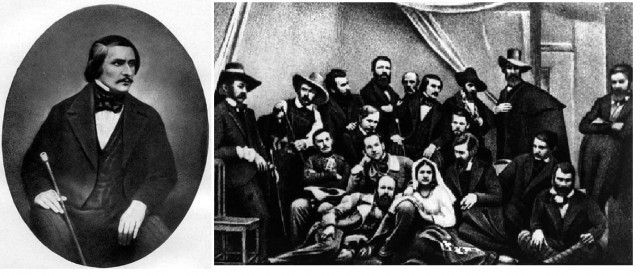 He dreamed of teaching at the history department of St. Volodymyr University (now Taras Shevchenko Kyiv National University) and writing the history of Ukraine, compiling collections of songs and beliefs. In 1833, he even applied for a post, but after receiving an offer to take up the position as a teacher of Russian history, he refused, claiming he lacked experience.
He dreamed of teaching at the history department of St. Volodymyr University (now Taras Shevchenko Kyiv National University) and writing the history of Ukraine, compiling collections of songs and beliefs. In 1833, he even applied for a post, but after receiving an offer to take up the position as a teacher of Russian history, he refused, claiming he lacked experience.
"There! There! To the ancient beauty! He is ours, he is not theirs - is it not true?" - this is how the writer spoke about Kyiv, considering it a part of Ukraine that does not belong to the Russian Empire.
His love for his homeland was criticized and even condemned by the literary and scientific community of Russia. In particular, poet Anna Akhmatova, public figure Abram Perets, and literary critic Vasyl Rozanov, who saw Hohol's ukrainophile work as a danger to the creation of the foundations of Russian culture.
Many writers of that time agreed that Hohol loved Ukraine to the core. The French writer and dramatist Prosper Merimet emphasized: “I was told that he was accused of reflecting provincial patriotism. Being a Little Russian (Ukrainian), he, as some people say, shows great affection for his Little Russia. "To the detriment of loyalty to the rest of the empire."
A language issue
On the point of the Russian-language and the heritage of the writer, the question arises: why did Hohol not write in Ukrainian? This discourse mostly results in cultural disagreements and rejection of the author's affiliation to national literature. You write in Russian – you are Russian. But this simplistic view negates the artist's achievements and works dedicated to Ukraine.
Russian chauvinist propaganda, which did not hesitate to appropriate the playwright who achieved success on the world stage, removed many facts from Hohol's biography that confirm his Ukraine identity. In particular, his blood ties with the hetmans are questioned, and his childhood and youth, which essentially shaped the personality of the writer, are not given much importance.
 According to historians and literary experts, Hohol did not write texts in his native language due to the fact that in the 19th century, to achieve success in the field of literature, it was necessary to use Russian. It was considered the language of "educated" people, and "Little Russian speech" (Ukrainian) - the vulgar language of the peasants (it is worth noting that such a perception existed until 2014, and currently the Ukrainian language is experiencing a period of flowering and formation). It should be noted that at that time Ukraine was praised in Russian by such undeniably Ukrainian writers as Yevhen Hrebinka, Hryhoriy Kvitka-Osnovyanenko, Ivan Kotlyarevskyi and even Taras Shevchenko.
According to historians and literary experts, Hohol did not write texts in his native language due to the fact that in the 19th century, to achieve success in the field of literature, it was necessary to use Russian. It was considered the language of "educated" people, and "Little Russian speech" (Ukrainian) - the vulgar language of the peasants (it is worth noting that such a perception existed until 2014, and currently the Ukrainian language is experiencing a period of flowering and formation). It should be noted that at that time Ukraine was praised in Russian by such undeniably Ukrainian writers as Yevhen Hrebinka, Hryhoriy Kvitka-Osnovyanenko, Ivan Kotlyarevskyi and even Taras Shevchenko.
Researchers of Hohol's work assume the origin of the unique "Hohol" language precisely because the writer thought in Ukrainian when writing his works. In his work on the playwright's contribution to world literature, the professor of the University of Helsinki, Joseph Mandelstam, noted that the vocabulary, semantics and syntax of the author were Ukrainian.
Hohol's translations into Ukrainian and other languages
Hohol's works have been translated into English, French, Spanish, German, Turkish, Bulgarian, Polish, Italian, Greek, Arabic, Finnish and many other languages. The writer's books became pearls of world literature along with Dante's "Divine Comedy" and Homer's "Odyssey".
One of the first translations of "Taras Bulba", taking into account the editing of Hohol himself, who avoided the Russian pathos of glorifying the then government, was the work of a luminary of the Ukrainian theater Mykola Sadovsky, which saw the light of day in 1918. Among modern publishing houses, you can note "A-BA-BA-HA-LA-MA-HA". In 2005, a two-volume volume of Hohol's works edited by Ivan Malkovich was published. This year, Vasyl Shklyar translated the writer's works for the "Calvary" publishing house based on the edition of 1835.
Modern culture and commemoration
The first monument to the author in the world was erected on September 4, 1881 in Nizhyn, where Hohol studied at the gymnasium.
In 1929, the literary and memorial museum of Mykola Hohol was founded in the village of Velyki Sorochyntsi in the Poltava region - the writer's homeland. It stores personal belongings, first editions of works, drawings and photos of the author. A national museum-reserve is open in the village of Hoholevo.
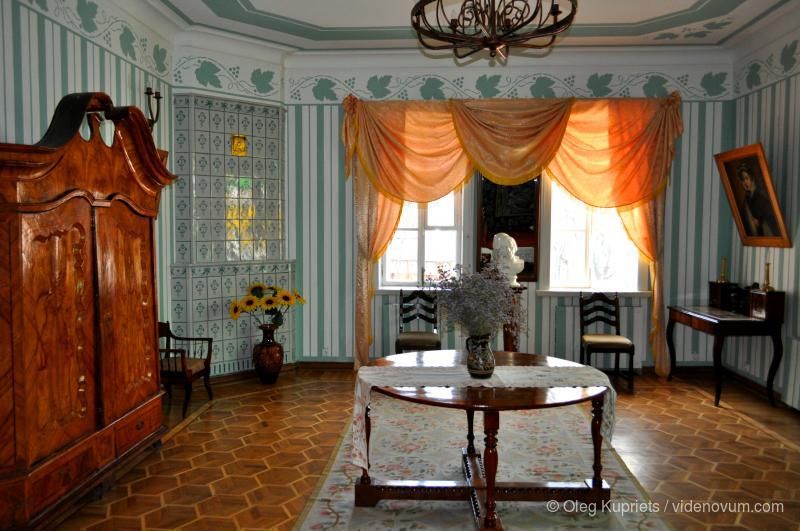 The Sorochyn fair deserves special attention - an authentic craft and agricultural event that became a world-famous Ukrainian brand, Hohol glorified it in the eponymous work of 1830 from the cycle "Village Evenings Near Dykanka". In the first half of the 20th century, the Holodomor, the Second World War and the oppression of the Soviet authorities, it was impossible to hold the event. But happily the tradition was restored after Ukraine gained independence. In 1999, the Sorochyn fair acquired national status. Every year in the middle of August, Velyki Sorochyntsi of the Myrhorod district receives thousands of guests who are interested in the culture and traditions of Ukrainian life. In 2023, in connection with the military aggression of the Russian Federation, the event was held in Lviv for the first time.
The Sorochyn fair deserves special attention - an authentic craft and agricultural event that became a world-famous Ukrainian brand, Hohol glorified it in the eponymous work of 1830 from the cycle "Village Evenings Near Dykanka". In the first half of the 20th century, the Holodomor, the Second World War and the oppression of the Soviet authorities, it was impossible to hold the event. But happily the tradition was restored after Ukraine gained independence. In 1999, the Sorochyn fair acquired national status. Every year in the middle of August, Velyki Sorochyntsi of the Myrhorod district receives thousands of guests who are interested in the culture and traditions of Ukrainian life. In 2023, in connection with the military aggression of the Russian Federation, the event was held in Lviv for the first time.
2009 was declared by UNESCO as the year of Hohol, in honor of the 200th anniversary of the author's birth. Coins and postage stamps were issued in honor of the writer, and an asteroid was named after him.
In modern Ukrainian culture, one can note the festival of modern art GOGOLFEST, which was held for 15 years in a row in such cities as Kyiv, Kherson, Mariupol, and Ivano-Frankivsk.
A special place is occupied by the American multicultural punk-rock band Gogol Bordello, whose frontman Yevhen Hudz is a native of Odessa. With the beginning of full-scale brutal invasion of Russia, the musical group performed in support of the Ukrainian people. In September 2022, they released the album Solidaritine with the Ukrainian track Forces of Victory, recorded together with Serhii Zhadan and with the participation of the band Kazka.
And finally, let's quote the words of the Russian (!) biographer of Hohol Volodymyr Shenrok about the affiliation of the author:
"...Gogol never ceased to be a true and faithful son of Ukraine, which, of course, could not but be reflected in the entire moral structure of this extremely gifted personality. Not only in terms of his origin, but also in terms of his character and appearance, he was a real Little Russian; he was connected with his poetic homeland by all the deep and cherished strings of his soul."


